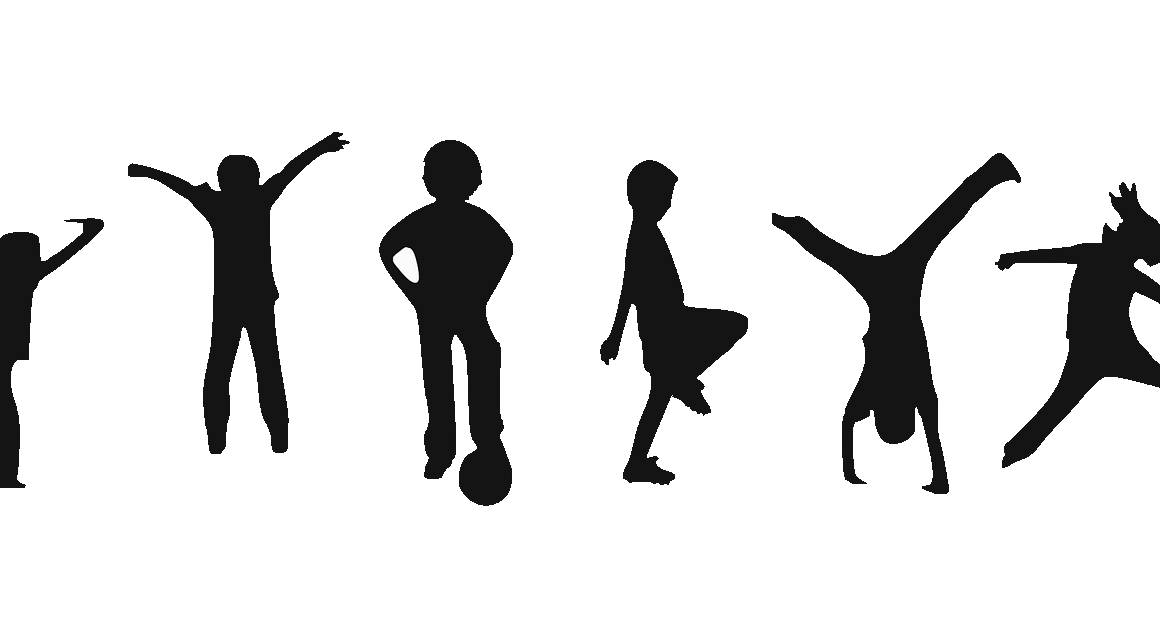Tracking Progress: The Role of Fitness Assessments in Youth Development
Fitness assessments for youth play a vital role in promoting physical health and enhancing overall development. These evaluations not only help in identifying the current fitness levels of children and adolescents but also establish a benchmark for future progress. By consistently measuring various fitness parameters, such as strength, endurance, flexibility, and body composition, trainers and coaches can develop tailored programs. Such personalized approaches can motivate youth to engage in regular physical activities, leading to positive lifestyle changes. Moreover, fitness assessments pave the way for educating families about the importance of a healthy lifestyle. Knowledge derived from assessments can encourage young individuals to set personal goals, fostering a sense of achievement as they witness their progress. Schools, community centers, and sports teams are creating initiatives around these assessments, ensuring that fitness becomes an integral part of youth culture. In this rapidly evolving world, where technology dominates, instilling strong fitness values through systematic assessments stands crucial. These practices contribute not only to physical well-being but also cultivate social skills, discipline, and teamwork. Ultimately, these attributes prepare youth for a thriving future beyond just the fitness realm.
Understanding the Importance of Regular Assessments
Regular fitness assessments serve as a check-in point for youth, allowing them to gauge their progress. Understanding how young individuals respond to physical activities can guide trainers in adjusting programs accordingly. This adaptability ensures that training methods remain effective and relevant to the growing needs of participants. Moreover, assessments can highlight strengths and weaknesses, enabling personalized training plans that focus on areas demanding improvement. For example, if a child excels in cardiovascular activities but struggles with strength training, coaches can emphasize resistance exercises to create a balanced routine. This approach not only optimizes results but also helps prevent injuries by addressing physical imbalances. Additionally, regular assessments foster accountability among youth, encouraging them to take charge of their health and fitness journey. Reporting results can nurture a competitive spirit, motivating them to better their previous performances. The social interactions fostered during assessments and training sessions promote teamwork and camaraderie, essential elements for building relationships. A sense of belonging can further enhance engagement and commitment to fitness goals. Consequently, the overall experience serves to empower youth, initializing them toward a healthier lifestyle filled with joy and satisfaction.
Parents and guardians can play a crucial role in encouraging their children to participate in fitness assessments. Through active involvement, they help create a supportive environment that promotes physical activity and healthy habits. Engaging parents also increases accountability and provides a valuable opportunity for families to bond over fitness journeys. When children see their parents prioritizing health, they are more likely to follow suit, fostering a culture of wellness at home. Additionally, parents can communicate the significance of fitness assessments as tools for personal growth and development. By encouraging kids to discuss results openly, they help build self-esteem and a positive body image, promoting confidence in young individuals. Sharing goals and progress with family acts as a motivational factor, turning fitness into a fun, shared experience. Moreover, some fitness assessments offer online reporting platforms, making it easier for parents to access their child’s data. Keeping track of progress through technology can increase engagement and interest among youth. With parents acting as cheerleaders, youth feel supported as they work toward their individual fitness goals. This involvement can lead to lasting habits that extend into adulthood, ensuring the benefits of these practices persist far beyond childhood.
Overcoming Barriers to Fitness
Many youth face barriers that hinder their fitness progress, including lack of access to facilities, time constraints, or limited support systems. Thus, understanding these obstacles is critical for tailoring effective assessments and programs. Community outreach is essential in addressing these challenges, and schools can lead the charge by collaborating with local gyms, sports clubs, and health organizations. By creating accessible programs, they can provide youth with the opportunities necessary to engage in regular fitness assessments and physical activities. Furthermore, schools should strive to educate students about the importance of balance in their schedules, emphasizing time management skills that allow for fitness prioritization. Programs showcasing fun, engaging activities can capture the attention of disinterested youth, demonstrating that fitness can be enjoyable. These strategies not only motivate youth to participate in assessments but also cultivate a long-term appreciation for physical activity. Educators should also seek to involve peers in fitness journeys, promoting teamwork and healthy competition. Conversely, addressing mental health in coalition with physical well-being encourages holistic approaches. Incorporating various tools and resources both in and outside schools ensures sustained engagement among youth while establishing a foundation that values fitness for life.
Integrating nutritional education alongside fitness assessments can significantly enhance results for youth. Understanding the relationship between nutrition and physical performance is crucial for developing well-rounded fitness habits. Schools and community centers can collaborate to offer workshops that emphasize healthy eating practices tailored for young individuals. By providing practical information about balanced diets, portion control, and hydration, youth can better grasp the importance of fueling their bodies adequately. This knowledge not only aids in optimizing performance but also fosters a healthier rapport with food. Parents should also engage in nutritional discussions, creating a unified approach to health. Making healthy meals a family affair encourages kids to embrace nutrition as part of their lifestyle. Together, families can explore cooking classes, grocery shopping tips, or meal prep strategies that inspire healthy choices. Educators can integrate nutrition-focused assessments and activities that allow students to make connections between what they eat and how it affects their fitness levels. Moreover, communities can establish gardens or farm visits to enhance knowledge about food sources. These comprehensive approaches nurture informed decision-making, encouraging youth to take control of their health while reinforcing the importance of combining fitness with proper nutrition.
Evaluating Success Through Feedback
Feedback mechanisms are essential for maximizing the effectiveness of fitness assessments among youth. By implementing various forms of feedback, youth can reflect on their progress and gain deeper insights into their fitness journeys. Coaches and trainers should develop systems that involve constructive feedback, ensuring young individuals feel supported and motivated. This can include regular check-ins, benchmarking against set goals, and emphasizing personal bests. Building an environment where youth feel comfortable discussing their challenges allows them to acknowledge and address obstacles without fear of judgment. In addition to coach feedback, peer discussions can provide valuable perspectives and camaraderie, which enhance motivation. Creating organized forums for youth to share experiences fosters community and encourages shared learning opportunities. Finally, self-assessment tools can empower kids to take charge of their health. Establishing personal performance benchmarks facilitates goal-setting, promoting the sense of empowerment. Empowered youth are more likely to stay committed to fitness and can inspire their peers to do the same. Thus, feedback and reflection become integral components of comprehensive fitness assessments, allowing youth to learn, grow, and thrive in their physical pursuits. Such practices solidify the concept of lifelong fitness in a fun, interactive manner.
Fitness assessments not only measure physical capabilities but also serve as stepping stones toward developing leadership and character traits among youth. Participating in assessments can teach important life skills such as resilience, discipline, and determination. While striving to improve performance, youth learn to face challenges and setbacks head-on. This fosters a growth mindset, where individuals recognize the value of hard work and perseverance. When youth see their efforts translating into measurable results, they gain confidence in their abilities, inspirational for both their individual journeys and among peers. Moreover, being part of fitness groups encourages responsibility and collaboration as they work together to achieve common goals. Team-oriented assessments allow youth to nurture friendships and learn to communicate effectively, building essential social skills. This environment lays the foundation to develop leadership qualities, equipping them with insights that benefit their future endeavors. As they experience success through teamwork, youth understand the importance of supporting each other’s efforts while celebrating collective wins. Consequently, involvement in fitness assessments transcends physical development, instilling core values that mold the character of young individuals across various aspects of their lives.
In conclusion, fitness assessments for youth play a significant role in enhancing physical health while promoting essential life skills. These evaluations enable young individuals to track their progress and develop personal goals, all while fostering a supportive culture around fitness. By engaging parents, overcoming barriers, integrating nutritional education, and providing structured feedback, communities can create an environment conducive to youth fitness overall. The holistic approach cultivated through these processes nurtures well-rounded individuals who understand the interplay between physical activity and personal well-being. Moreover, emphasizing the value of social interactions and teamwork helps build resilience and self-confidence among youth. Young individuals who actively participate in fitness assessments are likely to carry these practices into adulthood, ensuring the benefits extend beyond their teenage years. As we strive to promote a healthier generation, prioritizing fitness assessment becomes paramount, as it sets the foundation for lifelong habits and a love for physical activity. By investing in their health early on, we can create a future where children and adolescents are not only fit but also empowered, resilient, and equipped to tackle challenges. Ultimately, integrating these practices into youth development ensures that they lead flourishing lives, both physically and mentally.


